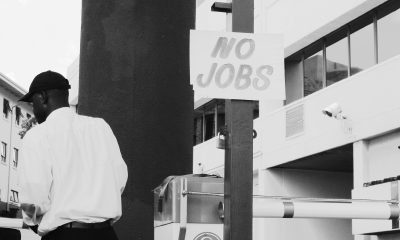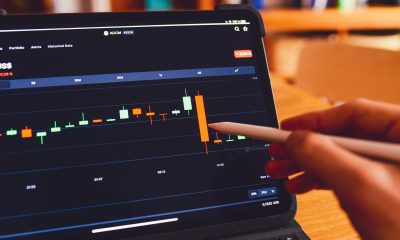Africa
Surging Expenditures Widen Morocco’s Budget Deficit Despite Revenue Growth
Despite rising revenues—especially from corporate taxes, VAT, and non-tax sources—public spending surged, widening Morocco’s budget deficit to 24.8 billion dirhams by June 2025. Higher expenditures on goods, services, and debt interest offset gains. Investment rose 10.9%, while compensation spending dropped. Financing needs increased, prompting greater reliance on domestic and external funding to rebalance debt.

While the state’s ability to mobilize resources is well established, spending continues to weigh heavily on Morocco‘s budget. This situation is further widening the budget deficit. Despite sustained growth in public revenue, driven in particular by corporate taxes and ICT, the dynamics of spending, particularly on goods and services, have increased the pressure on public finances.
This deterioration in the budget, marked by an increased need for financing, comes in a context of rebalancing the debt profile and increased mobilization of non-tax resources.
The implementation of the Finance Act, at the end of June 2025, shows a Treasury deficit of 24.8 billion dirhams compared to a positive ordinary balance of 20.4 billion dirhams during the same period a year earlier, which represents a widening of 20%. This budget deficit is the result of the increase in gross revenue of 20.6% compared to a rise in ordinary expenditure of 12.5%, year-on-year.
Morocco’s budget deficit: Revenue vs. Expenditure
In terms of revenue, the public resource mobilization strategy continues to be implemented. The monthly bulletin of public finance statistics shows that revenue was mainly driven by the domestic consumption tax (TIC) on energy products, which increased by 12% in one year. Net customs revenue also increased by 9.3%. Customs duties increased slightly by 2.6%.
Still on the subject of customs revenue, import VAT showed the same trend, with an increase of 8.4%. Furthermore, the TIC on manufactured tobacco recorded a notable increase of 20.6%. Other TICs totaled a strong increase of 14.2%. Furthermore, net domestic tax revenues grew by 22.2%, including +32.9% for corporate tax. Income tax also achieved a notable performance, with an improvement of 22.7%.
In addition, income tax revenues from real estate profits increased by 15% compared to their level at the end of June 2024. Income tax revenues collected by the Personnel Expenditure Directorate (DDP) under the Kingdom’s General Treasury increased by 2.2%. Net domestic tax revenues, including domestic VAT, increased by 7.1%. At the end of June, domestic VAT refunds (including the share paid by local authorities) were over 10.4 billion dirhams, compared to 7.5 billion dirhams a year earlier.
However, registration and stamp duties also increased by 4.9%. In addition, late payment surcharges increased by 22.2%, resulting in gross revenues of nearly 1.6 billion dirhams compared to 1.3 billion dirhams at the end of June 2025.
In addition, a change is observed in non-tax revenues, estimated at 32.8%. This is due, in particular, to the increase in payments from special Treasury accounts to the general budget (13.6 billion dirhams compared to 7.5 billion dirhams) and from assistance funds (873 million dirhams compared to 554 million dirhams). It is reinforced by the increase in monopoly revenues (5.8 billion dirhams compared to 3.9 billion dirhams) and revenues in debt reduction expenditures (2.9 billion dirhams compared to 2.6 billion dirhams).
Morocco’s budget doesn’t look good: Spending on the rise
As for expenditure, the overall commitment rate was 49%, with an issue rate on commitments of 82%, compared to 50% and 80% respectively a year earlier. Similarly, ordinary expenditure recorded a 19% increase, due to the 20.7% increase in expenditure on goods and services, due to the 10.8% increase in personnel expenditure and the 38% increase in other expenditure on goods and services. Debt interest charges followed the same trend (+11.6%).
On the other hand, expenditures for compensation fell by 32%. Tax refunds, rebates, and refunds also increased by 43.7%. The total amount of VAT refunds for domestic and imported goods (including the share paid by local authorities) was MAD 10.4 billion, compared to MAD 7.5 billion a year ago. Regarding investment, related expenditures increased by 10.9%, reaching MAD 54.4 billion.
It should be noted that at the end of June, ordinary revenues were achieved at 57.6% of the budget forecasts. Ordinary expenditures were executed at 50.8% and investment expenditures issued at 42.4%. As for domestic debt management, figures indicate that during the first six months of the year, the Treasury carried out bond exchange operations to readjust the debt profile.
These operations amounted to a total of 10.9 billion dirhams. Given a financing requirement of 46 billion dirhams compared to 30.5 billion dirhams at the end of June 2024 and a positive net flow of 19.8 billion dirhams from external financing compared to a negative net flow of 1.4 billion dirhams a year earlier, the Treasury resorted to domestic financing. Its amount was 26.1 billion dirhams compared to 32 billion dirhams at the end of June 2024.
__
(Featured image by Calin Stan via Unsplash)
DISCLAIMER: This article was written by a third party contributor and does not reflect the opinion of Born2Invest, its management, staff or its associates. Please review our disclaimer for more information.
This article may include forward-looking statements. These forward-looking statements generally are identified by the words “believe,” “project,” “estimate,” “become,” “plan,” “will,” and similar expressions. These forward-looking statements involve known and unknown risks as well as uncertainties, including those discussed in the following cautionary statements and elsewhere in this article and on this site. Although the Company may believe that its expectations are based on reasonable assumptions, the actual results that the Company may achieve may differ materially from any forward-looking statements, which reflect the opinions of the management of the Company only as of the date hereof. Additionally, please make sure to read these important disclosures.
First published in LES ECO.ma. A third-party contributor translated and adapted the article from the original. In case of discrepancy, the original will prevail.
Although we made reasonable efforts to provide accurate translations, some parts may be incorrect. Born2Invest assumes no responsibility for errors, omissions or ambiguities in the translations provided on this website. Any person or entity relying on translated content does so at their own risk. Born2Invest is not responsible for losses caused by such reliance on the accuracy or reliability of translated information. If you wish to report an error or inaccuracy in the translation, we encourage you to contact us

-

 Business4 days ago
Business4 days agoDow Jones Breaks 50,000 as Bull Market Surges Amid Caution and Volatility
-

 Business2 weeks ago
Business2 weeks agoBattered, but Still Bullish on Gold & Silver
-

 Impact Investing2 days ago
Impact Investing2 days agoEU Backs 90% Emissions Cut by 2040 and Delays ETS2 Rollout
-

 Crowdfunding1 week ago
Crowdfunding1 week agoNewcleo Raises $85 Million to Advance Fourth-Generation Nuclear Reactors
























